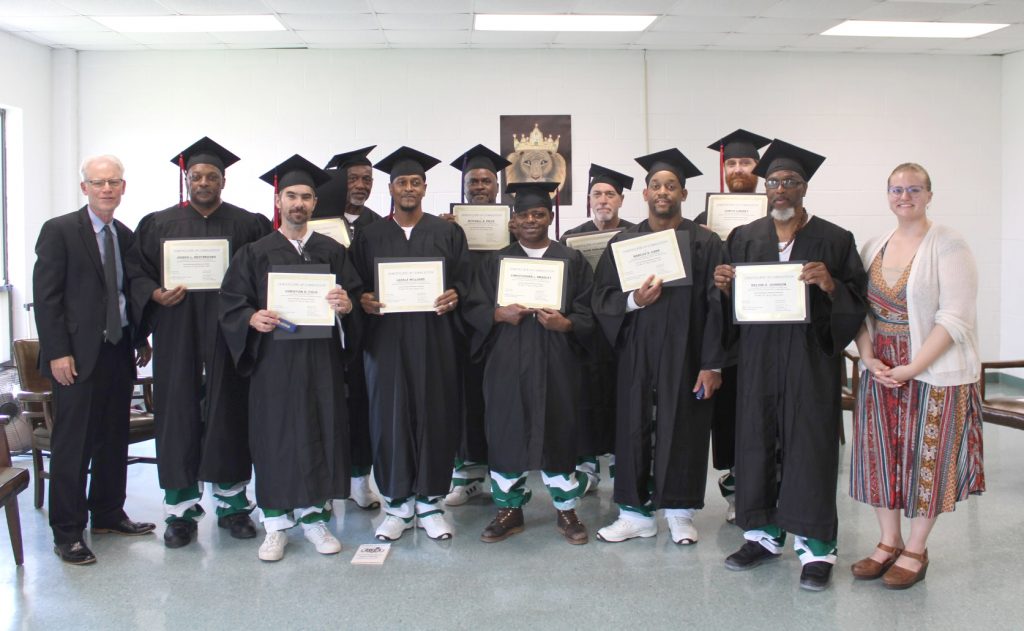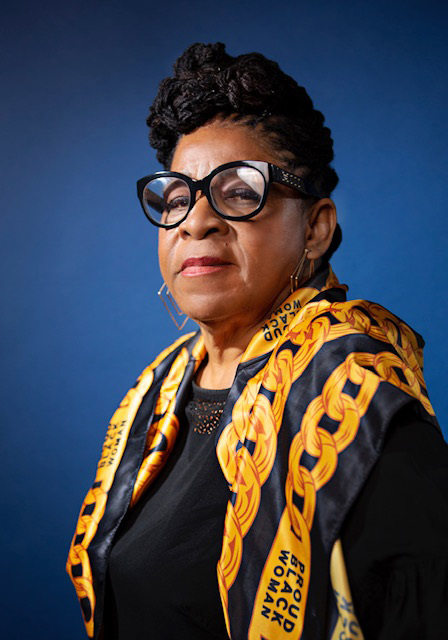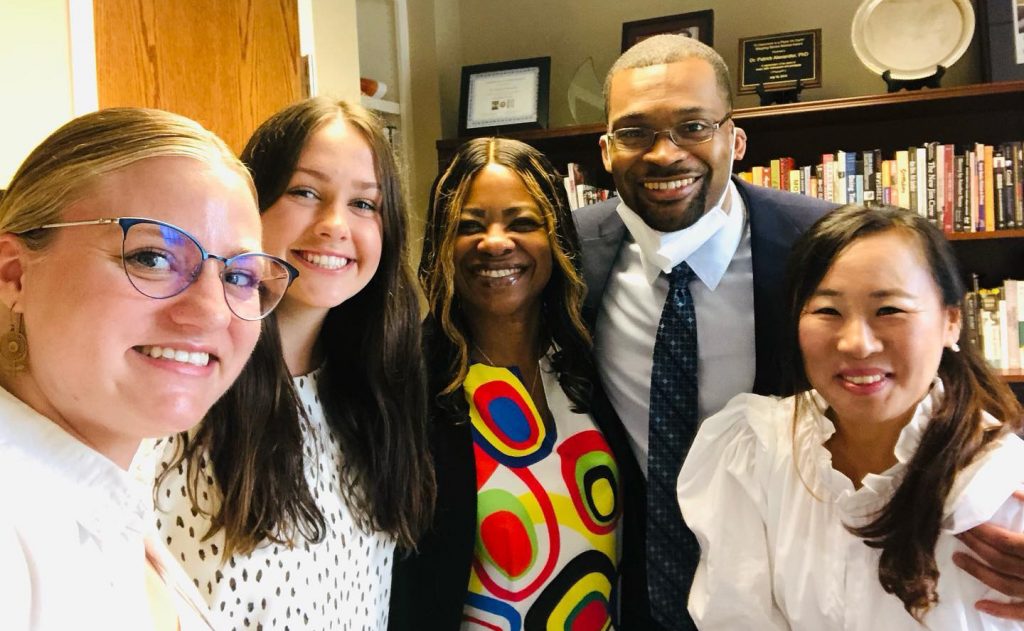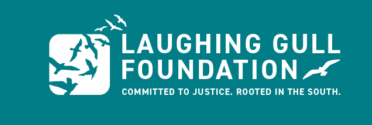
University of Mississippi professor Adam Gussow (left) and Prison-to-College Pipeline Program teaching assistant Morgan McComb (right) celebrate with PTCPP students who completed the spring 2023 PTCPP course 'Blues Tradition in American Literature.' Photo courtesy Mississippi Department of Corrections
A $150,000 grant to the University of Mississippi‘s Prison-to-College Pipeline Program will help expand course offerings and services to those looking to transform their lives during and after incarceration.
The Laughing Gull Foundation, a Durham, North Carolina, organization committed to justice issues in the South, awarded the grant. The funding will support the university’s efforts to send educators with humanities-based college-level curricula to teach men at the Mississippi State Penitentiary at Parchman in Sunflower County.
Patrick Alexander, an associate professor of English and African American studies, is the program’s director. He said the funds will support training professors and teaching assistants at Parchman and provide other program support to those behind bars.
“These monies have moved us closer to realizing our dream to create a world where, if incarcerated students want to earn a college degree, they will be able to do so through our program,” Alexander said. “This funding from Laughing Gull has been a huge game changer for the PTCPP.”
Since its launch in 2014, the program has helped more than 100 students. Almost half the students are earning college credits, and a graduation ceremony is held for those who complete a course.
UM Provost Noel Wilkin, who attended the summer 2022 ceremony, said none of the graduates mentioned just being happy the program gave them something to do in prison.
“They talked about how the program gave them confidence, how it opened their minds to different ways of thinking and being, how it enabled them ‘to steal away’ from their circumstances and situations, how it gave them hope for being able to offer something of value in conversations with their families and how it gave them motivation to make a difference once they leave prison,” Wilkin said.
Visits to the programs’ classrooms made it clear that a “vibrant and powerful” education process was taking place, said LaTonya Penny, Laughing Gull Foundation’s chief executive officer.
“These students inspired us greatly,” Penny said. “They were engaged with their lessons and coursework, and they are receiving wonderful instruction and encouragement from the program’s leaders, who go above and beyond to ensure every student is supported.”
Recently, the funds helped co-sponsor the first-ever speaker in the Dr. Jeannette Jennings Lecture Series. Susan Burton, a criminal justice reform movement leader and award-winning author, used a virtual platform to discuss her memoir and conducted a question-and-answer session with PTCPP students.
Since the program started, the College of Liberal Arts has also provided books and supplies for each course and graduation. The college has also paid for the program’s faculty and teaching assistants through its English and history departments and the African American studies program.
Tracion Flood, who was formerly incarcerated, was hired as program manager. Besides launching a newsletter that features incarcerated students’ writing and artwork, she has been an academic counselor and helps with important decisions about post-release education, employment opportunities and housing, Alexander said.
Several Ole Miss students and former students have helped the program succeed. Students, faculty, deans, and administrators and staff members from the outreach, admissions, finance, registrar, and bursar offices have all been involved.
The Mississippi Department of Corrections has been supportive as well, Alexander said.
UM professors Jay Watson and Adam Gussow, and Ann Fisher-Wirth, professor emerita of English, are all working with the students in the program. Gussow, professor of English and Southern Studies, has explored the blues literary tradition with them.
“I will always be grateful to the 10 men in that class, and to Patrick for gifting me with the single most enlightening and transformative experience I’ve had as a professor,” Gussow said.
Watson, the university’s Howry Professor of Faulkner Studies, said 2022 was the first year that prison officials allowed students to graduate in something other than their stripes.
“Everyone in the class had a high school diploma or GED, but I suspect that very few of them had walked through a commencement ceremony,” Watson said. “That day was a big step forward for the program, and honestly, I think every one of them grew a couple of inches taller that day.”
The Prison-to-College Pipeline Program Fund is open to gifts from individuals and organizations by mailing a check, with the fund’s name noted in the memo line, to the University of Mississippi Foundation, 406 University Ave., Oxford, MS 38655; or visit https://give.olemiss.edu.
By Jonathan Scott







